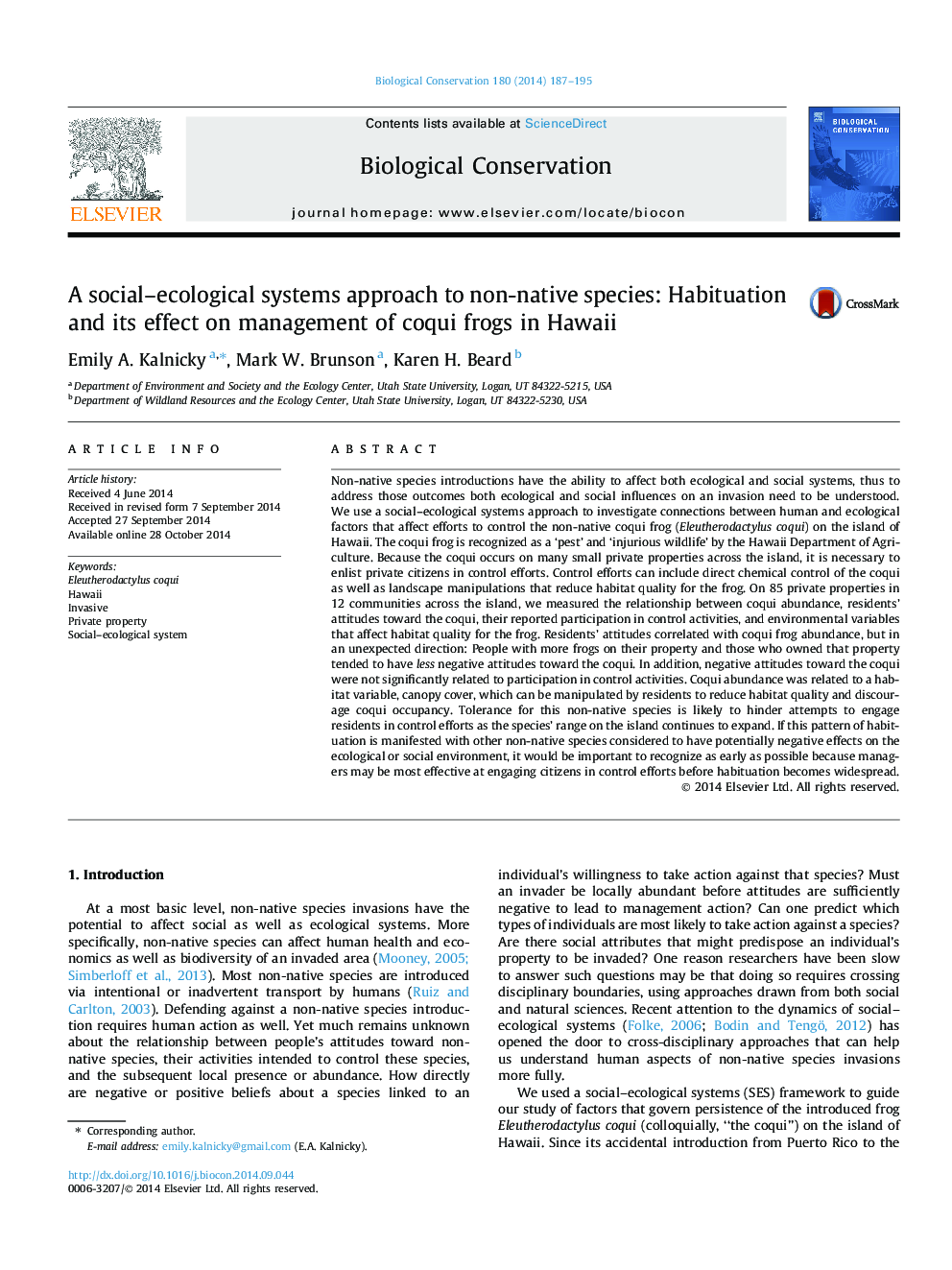| کد مقاله | کد نشریه | سال انتشار | مقاله انگلیسی | نسخه تمام متن |
|---|---|---|---|---|
| 6299606 | 1617921 | 2014 | 9 صفحه PDF | دانلود رایگان |

- Non-native frog abundance varies with landscaping features.
- Negative attitudes are not correlated with control actions toward non-native frogs.
- Persons whose properties host non-native frogs appear to become habituated to them.
- Habitatuation of non-natives needs to be recognized by land managers.
Non-native species introductions have the ability to affect both ecological and social systems, thus to address those outcomes both ecological and social influences on an invasion need to be understood. We use a social-ecological systems approach to investigate connections between human and ecological factors that affect efforts to control the non-native coqui frog (Eleutherodactylus coqui) on the island of Hawaii. The coqui frog is recognized as a 'pest' and 'injurious wildlife' by the Hawaii Department of Agriculture. Because the coqui occurs on many small private properties across the island, it is necessary to enlist private citizens in control efforts. Control efforts can include direct chemical control of the coqui as well as landscape manipulations that reduce habitat quality for the frog. On 85 private properties in 12 communities across the island, we measured the relationship between coqui abundance, residents' attitudes toward the coqui, their reported participation in control activities, and environmental variables that affect habitat quality for the frog. Residents' attitudes correlated with coqui frog abundance, but in an unexpected direction: People with more frogs on their property and those who owned that property tended to have less negative attitudes toward the coqui. In addition, negative attitudes toward the coqui were not significantly related to participation in control activities. Coqui abundance was related to a habitat variable, canopy cover, which can be manipulated by residents to reduce habitat quality and discourage coqui occupancy. Tolerance for this non-native species is likely to hinder attempts to engage residents in control efforts as the species' range on the island continues to expand. If this pattern of habituation is manifested with other non-native species considered to have potentially negative effects on the ecological or social environment, it would be important to recognize as early as possible because managers may be most effective at engaging citizens in control efforts before habituation becomes widespread.
Journal: Biological Conservation - Volume 180, December 2014, Pages 187-195